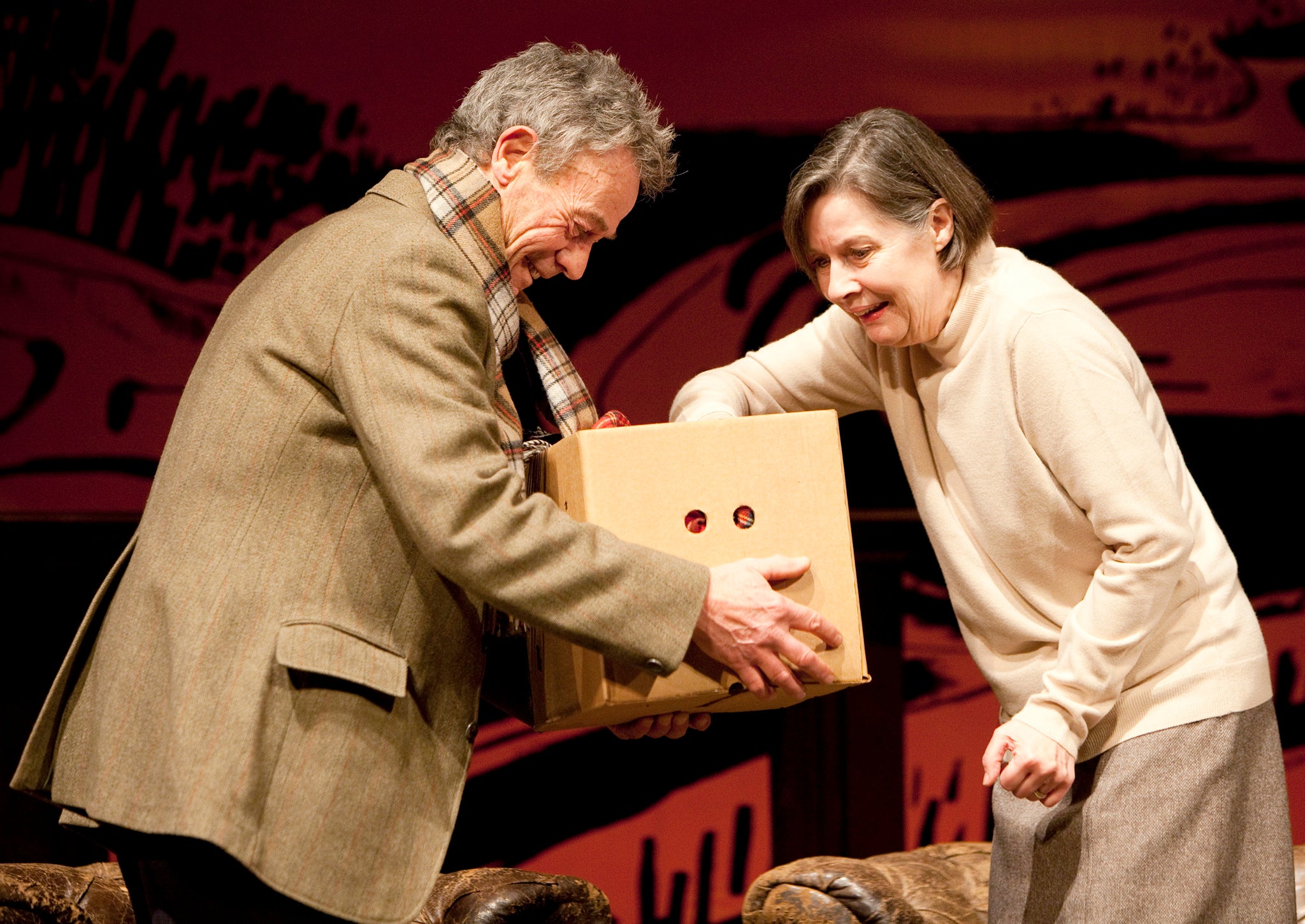Only Our Own, theatre review: 'A clumsy production, deficient in genuine drama'
Arts Theatre, London

Set between 1989 and today, Ann Henning Jocelyn's plodding drama attempts to show us the social changes that have taken place in Ireland through the experience of three generations of a dispossessed Anglo-Irish family.
Meg and Andrew (Maev Alexander and Cornelius Garrett) run a salmon fishery in Connemara, but the dying matriarch of the clan, Lady Eliza (Elaine Montgomerie), still broods over the night in 1922 when, as a girl of eleven, she saw rebels burn down the ancestral home and murder her brother.
Alex Gilbert's Titania, the moody, disaffected granddaughter, is a bit of a rebel too. Bitterly resentful of the tight Protestant snobberies that have isolated her, she becomes pregnant by a local Catholic farmer and then dumps the children on her parents.
The later dispute over their future exposes Titania's own failure to move with the times. The trouble, though, is that the characters come over as schematic cardboard cut-outs of class and type, while the dialogue is so flavourless that it sounds translated.
The events of 1922 are conveyed through a narrated letter which, though eloquent, keeps bringing Lars Harald Gather's clumsy production to a standstill and is symptomatic of a play that's deficient in genuine drama.
Join our commenting forum
Join thought-provoking conversations, follow other Independent readers and see their replies
Comments
Bookmark popover
Removed from bookmarks